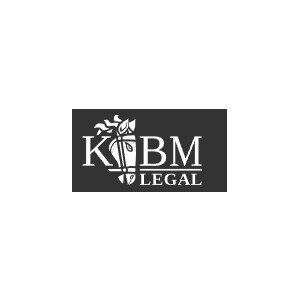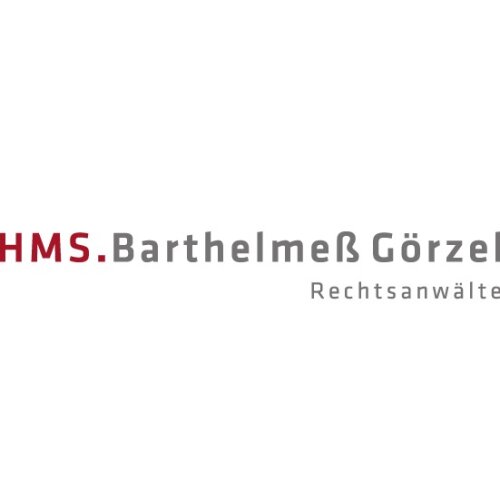Best Funds & Asset Management Lawyers in Cologne
Share your needs with us, get contacted by law firms.
Free. Takes 2 min.
List of the best lawyers in Cologne, Germany
About Funds & Asset Management Law in Cologne, Germany
Cologne is a significant financial hub in Germany, and its funds and asset management sector plays a vital role in the European market. Funds and asset management law in Cologne encompasses a variety of regulations and legal frameworks involving the creation, administration, and oversight of investment funds, mutual funds, private equity funds, and other pooled investment vehicles. The legal environment in Cologne is influenced by both national German regulations and European Union directives, making it essential for participants to understand a complex web of rules regarding licensing, compliance, investor protection, and taxation.
Why You May Need a Lawyer
People and businesses often seek the assistance of a lawyer in the field of funds and asset management for several reasons. Common situations include setting up new investment funds, ensuring ongoing regulatory compliance, navigating tax implications of investment structures, or resolving disputes between fund managers and investors. Legal experts are also invaluable when acquiring or restructuring existing funds, negotiating contracts, and addressing regulatory queries or investigations. Because the regulatory environment can be challenging and is frequently updated, professional legal advice is crucial to avoid risks, penalties, or legal complications.
Local Laws Overview
Funds and asset management in Cologne are primarily governed by German laws such as the Kapitalanlagegesetzbuch (KAGB, Investment Code), which implements European directives like UCITS (Undertakings for Collective Investment in Transferable Securities) and AIFMD (Alternative Investment Fund Managers Directive). These laws dictate the formation, licensing, and management of both retail and alternative investment funds. The Bundesanstalt für Finanzdienstleistungsaufsicht (BaFin), Germany's Federal Financial Supervisory Authority, oversees the sector and enforces compliance. Key aspects include mandatory licensing, risk management requirements, investor disclosures, organizational rules, and robust anti-money laundering (AML) regulations. Additionally, tax laws, such as the German Investment Tax Act, and consumer protection rules are highly relevant.
Frequently Asked Questions
What is the typical process for setting up an investment fund in Cologne?
The process typically involves selecting a legal structure, drafting fund documentation, applying for BaFin licensing, fulfilling compliance and disclosure requirements, and establishing operational frameworks for management and reporting.
Do all fund managers need to be licensed in Germany?
Most fund managers require a BaFin license, especially if managing funds marketed publicly. Some exemptions exist for small managers, but these are subject to specific conditions.
Are foreign funds allowed to operate in Cologne?
Yes, foreign funds can be marketed in Cologne if they comply with German law and European regulations. They usually need to notify or register with BaFin and meet local disclosure and advertising rules.
What are the main compliance requirements for fund managers?
Key compliance obligations include risk management, proper documentation, regular reporting to regulators and investors, anti-money laundering protocols, and ensuring adherence to investment restrictions set by law.
How are funds taxed in Germany?
Funds are subject to the German Investment Tax Act, which sets provisions for tax at both fund and investor level, including rules on withholding taxes and exemptions based on fund structure and investor type.
What rights do investors have in German funds?
Investors benefit from statutory disclosure rights, redemption rights, and avenues for complaint or dispute resolution. Funds must provide regular updates and maintain transparency about performance and risks.
What happens if a fund manager breaches regulations?
Regulatory breaches can result in financial penalties, loss of license, reputational damage, and, in serious cases, criminal investigations. Regulatory action is enforced by BaFin.
Can funds invest in assets outside Germany?
Yes, German funds can invest in a wide range of international assets, subject to their specific investment strategy and compliance with applicable regulations regarding diversification and risk.
Are there special rules for sustainable or ESG funds?
Yes, funds marketed as environmentally or socially responsible must comply with additional disclosure and reporting requirements under both EU and German law, particularly concerning transparency about their sustainable investments.
How do I resolve a dispute with a fund or fund manager?
Investors may first seek to resolve the issue through internal complaint procedures. If unresolved, they can contact BaFin or pursue civil litigation with the help of a lawyer specializing in funds and asset management law.
Additional Resources
For those seeking further information or assistance, consider reaching out to the following resources and organizations:
- Bundesanstalt für Finanzdienstleistungsaufsicht (BaFin) - The principal regulator of funds and asset management in Germany
- German Investment Funds Association (BVI) - Industry body supporting fund managers and investors
- Chamber of Commerce and Industry of Cologne - Guidance for businesses and investors entering the local market
- German Bar Association (DAV) - Directs individuals to qualified lawyers specializing in financial law
- European Securities and Markets Authority (ESMA) - Provides regulatory updates that impact German funds
Next Steps
If you need legal assistance in the field of funds and asset management in Cologne, begin by gathering all relevant documentation regarding your fund or investment plans. Consider seeking an initial consultation with a lawyer who specializes in German and EU financial regulations, ideally one based in Cologne with a track record in funds and asset management. Clearly outline your objectives and any specific concerns you have. Your lawyer can provide an assessment of your position, explain compliance requirements, and help you navigate regulatory, tax, and contractual complexities efficiently. Remember that early legal advice can prevent costly mistakes and ensure your investment operations are secure and legally sound.
Lawzana helps you find the best lawyers and law firms in Cologne through a curated and pre-screened list of qualified legal professionals. Our platform offers rankings and detailed profiles of attorneys and law firms, allowing you to compare based on practice areas, including Funds & Asset Management, experience, and client feedback.
Each profile includes a description of the firm's areas of practice, client reviews, team members and partners, year of establishment, spoken languages, office locations, contact information, social media presence, and any published articles or resources. Most firms on our platform speak English and are experienced in both local and international legal matters.
Get a quote from top-rated law firms in Cologne, Germany — quickly, securely, and without unnecessary hassle.
Disclaimer:
The information provided on this page is for general informational purposes only and does not constitute legal advice. While we strive to ensure the accuracy and relevance of the content, legal information may change over time, and interpretations of the law can vary. You should always consult with a qualified legal professional for advice specific to your situation.
We disclaim all liability for actions taken or not taken based on the content of this page. If you believe any information is incorrect or outdated, please contact us, and we will review and update it where appropriate.









